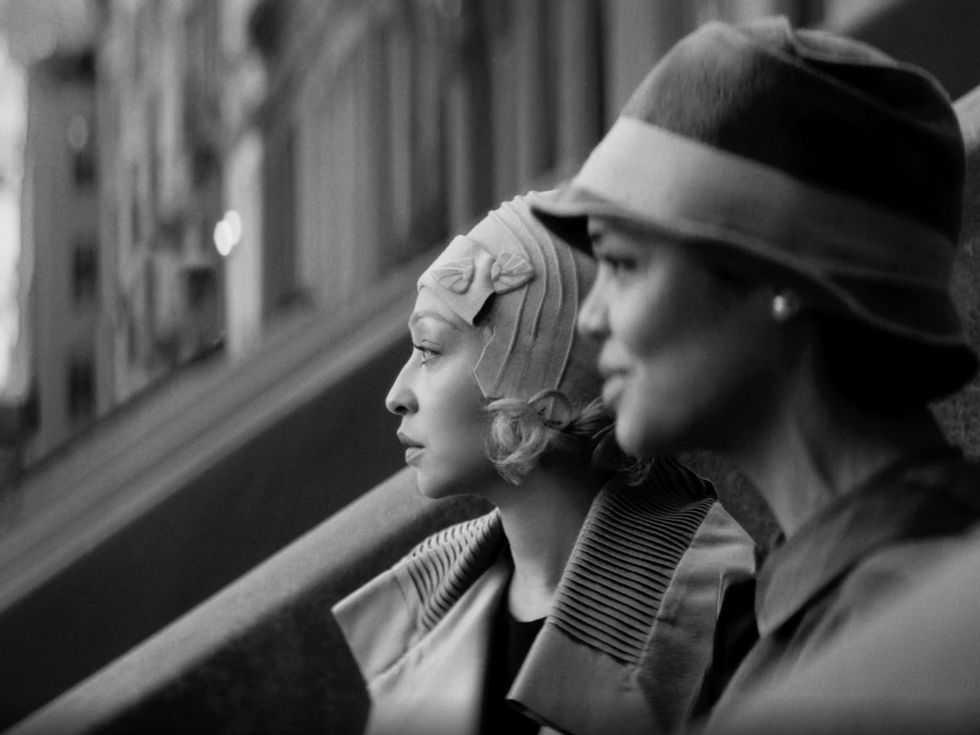If you hear a buzz after finishing director Rebbeca Hall’s film Passing, don’t worry it’s not a fly in your room, it’s the Oscar buzz.
Passing, adapted from Nella Larson’s 1929 novel of the same name, is a perceptive piece of art that poignantly portrays the conflict and complexity of racial ambiguity in 1920s America.
When Irene Redfield (Tessa Thompson), who is a mother and a wife with a seemingly perfect life, meets her old childhood friend Clare Bellew (Ruth Negga) after 12 years apart, their worlds collide in a way she wouldn’t have expected.
Irene is surprised to discover that Clare has been passing as white. Clare is married to a wealthy white man, with a daughter she plans on sending to a Swedish boarding school.
While Irene occasionally uses her privilege to use white-only services from time to time, Clare ‘passes’ everyday. She even admits that while she was pregnant she was filled with anxiety because she was worried about how dark her child would be.
The two women have chosen two diverging paths and it’s no more apparent than when Irene meets Clare’s husband John Bellew (Alexander Skarsgård), whose casually violent racism highlights how far Clare has turned from her heritage.
The first word that comes out of his mouth is ‘Nig’, which is a pet name he has for Clare, coined when he noted that her skin was getting darker over the course of their marriage, and that if she wasn’t careful she would end up looking like a Black person.
Racial ambiguity has been a tool employed by many biracial or more European appearing African Americans for centuries. The colour lines blurred after slavery ended due to master-slave relations and Black people who could pass for white opted to change races for a chance at a better life.
In Passing, audiences are brought into the lives of Irene and Clare who are both passing but the duality of the choices they have made in their lives to either pass makes the audience question: “Who truly has it better?” But there is no answer to this question, as Clare and Irene are in two different cages of oppression and rules that plague their lives. They are both in prisons of their own making.
This may be Rebecca Hall’s directorial debut but everything about Passing is deliberate, intentional, and evocative. Shooting the entire film with a black and white filter leaves the audience straining to see if Clare, who has chosen a life as a blonde, white woman is truly passing or not – which is exactly what Hall wants.
The chemistry between Thompson and Negga is fraught with jealousy, borders into obsession and veers into the murky territory of Irene’s repressed attraction to Clare. Lingering finger snatched back quickly at points made me wonder is this film really a Sapphic love story?
Clare with her husband John (Skarsgård has mastered the artform of detestable husband) and Irene married to Brian, played by André Holland, a handsome Black doctor, and two sons, juxtapose one another’s lives in an eerie and erotic manner.
Although neither would trade places with the other, they both envy what the other has. Irene envies Clare’s effortless beauty and Clare envies the freedom and sense of identity Irene has. In between the polite smiles and curious gazes, what binds them together isn’t their childhood but jealousy.
Irene is hesitant to bring Clare into her social circle but Clare latches on like a leech, and soon a once vibrant Irene becomes cold, distant, and untrusting of her husband and Clare’s relationship. Throughout every scene Clare exercises her passing privilege to wrap every man in sight around her upper class Manhattan finger, including Irene’s husband.
Irene is a woman with a perfect life, a perfect mother and wife. Clare, meanwhile, yearns to recapture the identity she let go of so easily and now wants back. Yet, Clare isn’t looking for true solidarity with the Black community, simply excitement. She doesn’t want any of the effluvium that comes with blackness, only the music, entertainment, food and dancing.
At the core of this movie we are shown what people will hide about themselves to get what they want, no matter the cost. In the end I was left with one resounding thought: “Aren’t we all trying to pass for something?”
Passing is a visceral, uncomfortable, anxiety-inducing experience, that cleverly uses the black gaze so audience members are in a constant state of fear that they themselves will be caught out, and their own masks so delicately placed, will fall off as Clare’s ultimately does.
Passing is available on Netflix





